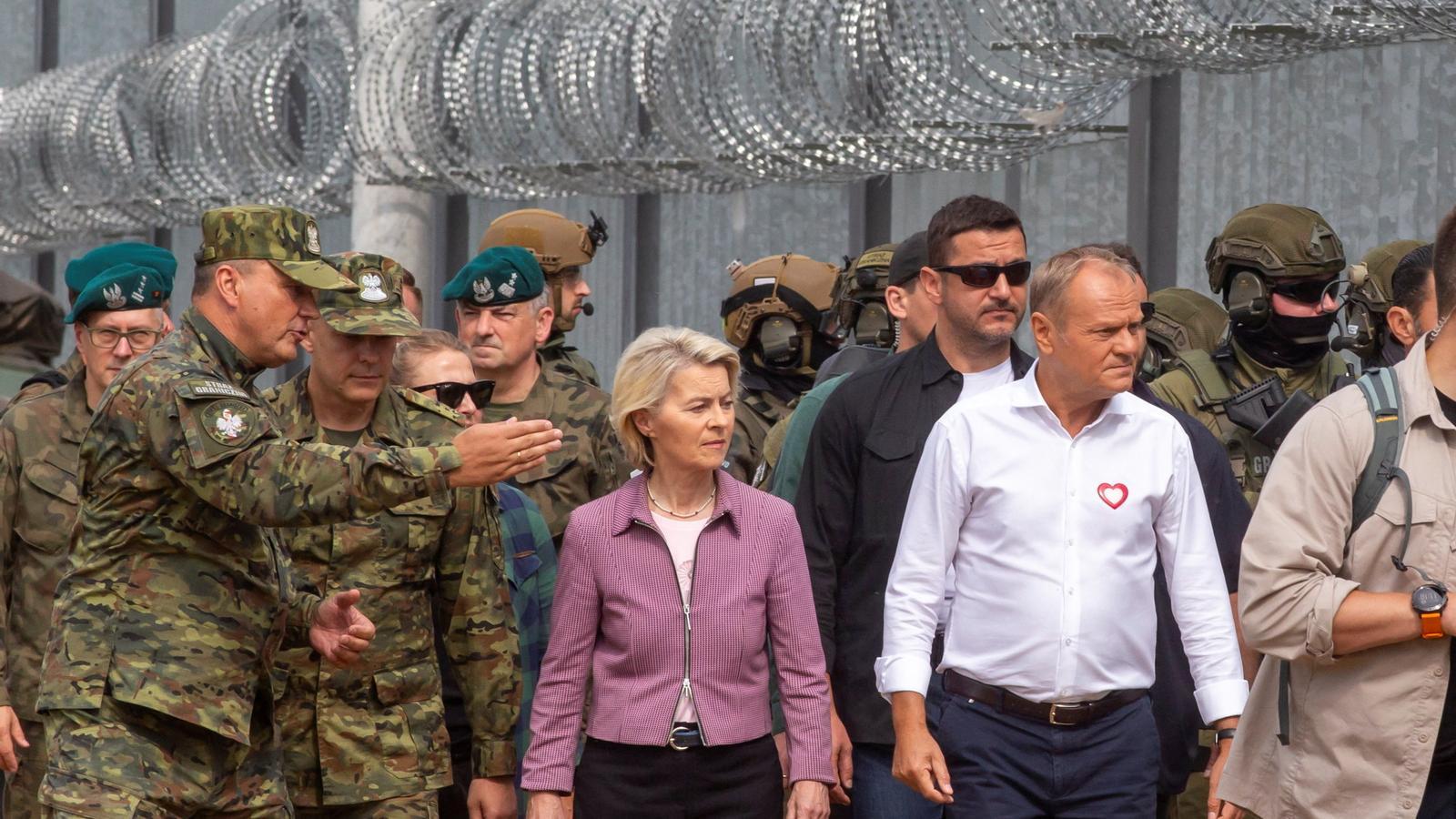Poland and the Baltic countries have long been demanding more funding from Brussels to protect their borders from Russian drones.
They also denounce the exploitation of migrants by Minsk and Moscow as a destabilizing element of the EU.

BerlinThe Violation of Polish airspace by Russian drones This Wednesday has set off alarm bells not only in Poland, but throughout the entire NATO alliance. For the first time, NATO air defenses have had to shoot down Russian drones over the territory of a member state. This is the most serious incident so far, but the countries closest to Russia and Ukraine have long been warning of the dangers they face.
In fact, Poland, Finland, Latvia, Lithuania, and Estonia have asked the European Commission for additional funding to protect the European Union's external borders, given the increase in drone incursions into their territories, hybrid threats emanating from Belarus and Russia, and the instrumentalization of migrants as a destabilizing element by Minsk and Moscow.
In a letter recently sent to European Commission Vice President Henna Virkkunen and Commissioner for Home Affairs and Migration, Magnus Brunner, the interior ministers of these five European countries ask Brussels for more funding to strengthen surveillance and anti-drone technologies. This request for additional funds comes after several countries bordering Russia and Belarus had already detected an increase in drone violations of their airspace on their territories.
"We thank the Commission for the help and support it has provided us so far, but the security challenges in our region are not diminishing. Recently, Lithuania and other countries in our region, which protect the EU's external border, have faced violations of their airspace. To ensure airspace. drones, which requires additional funding," explained Lithuanian Interior Minister Vladislav Kondratovic, as reported by the newspaper The Baltic Times.
Several incidents involving Russian drones
Two Russian-made Gerbera drones crossed into Lithuanian airspace from Belarus in July. One was carrying two kilograms of explosives. The Gerbera drone is commonly used as a decoy in Moscow's attacks on Ukraine. Following this incident, Lithuania asked NATO for help in strengthening its air defenses.
A Russian drone crashed in August in a cornfield in the town of Osiny, in eastern Poland. Although no one was injured, the drone smashed windows of nearby houses. Warsaw protested to Moscow what it called "another deliberate provocation that falls within the pattern of hybrid actions undertaken by the Russian Federation both against Poland and other European countries."
Brussels and other European capitals have also for years accused Minsk and Moscow of waging "hybrid warfare," encouraging or even assisting people with Russian student or tourist visas to illegally cross EU borders for destabilizing purposes.
In recent days, European Commission President Ursula von der Leyen has toured Finland, Estonia, Poland, Lithuania, Bulgaria, and Romania to discuss defense and security issues with their leaders. With this trip, Von der Leyen wanted to express the EU's support for member states facing the challenge of sharing borders with Russia or Belarus.
She herself suffered the consequences of this situation when The plane on which he was traveling to Bulgaria suffered GPS interference., allegedly Russian. Although it managed to land safely, the incident highlighted another risk associated with Russian hybrid warfare.
